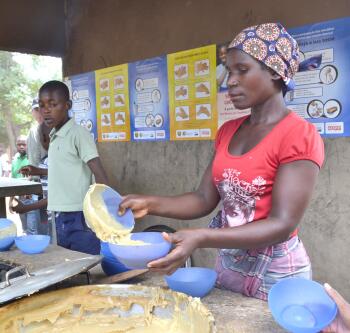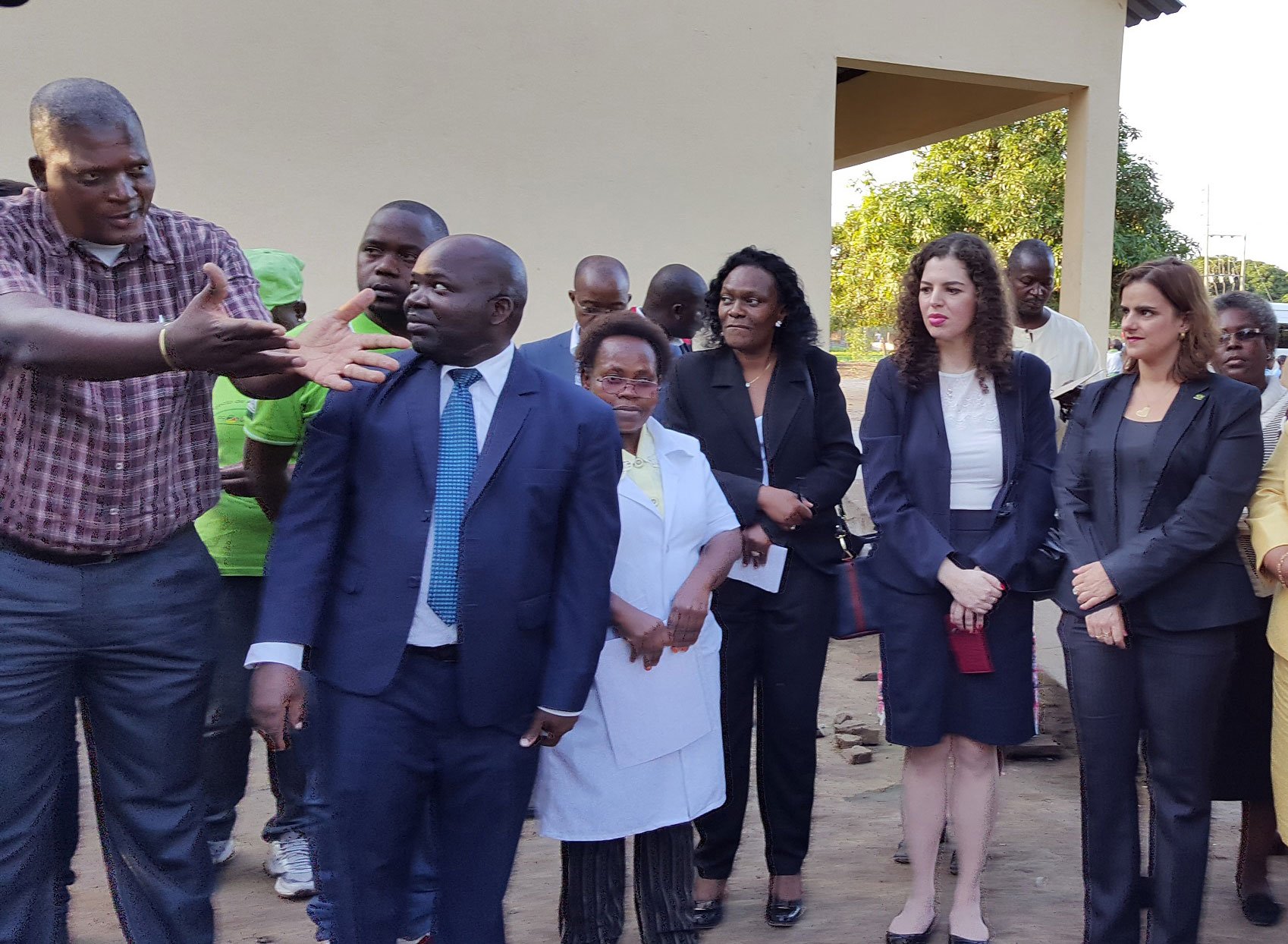Delegation from First Lady of Mozambique's Cabinet and Brazilian Cooperative Agency Visit Food for Knowledge
"Food for Knowledge has been making steady progress in strengthening nutrition, health, and education for schoolchildren in Mozambique. We are pleased that our work, together with that of our implementing partner ADPP Mozambique, is being used as a platform for additional progress."
—Ester Neltrup, President, Planet Aid
A delegation from the Brazilian Cooperation Agency (ABC) and the First Lady of Mozambique's office recently visited Planet Aid's Food for Knowledge Project in Mozambique. The delegation visited Filipe Samuel Magaia Primary School in Xinavane, about 80 km north of the capital Maputo. The school is one of 269 participating Food for Knowledge schools that are providing nearly 80,000 children with a daily school lunch.
The delegation was pleased with the progress they saw. The visit occurred at the start of a three-day workshop in early June hosted by the First Lady of Mozambique, Dr. Isaura Nyusi, in Maputo. The workshop focused on launching an initiative in Mozambique to help make food more available to the hungry and poor. Planet Aid's local implementing partner, ADPP Mozambique, was invited to be part of the high-level organizing committee. Because of Brazil's considerable progress in making food available to the poor through its "popular restaurants" concept, the First Lady also invited representatives from Brazil's ABC to help plan the initiative.
 Food for Knowledge is Mozambique's flagship school lunch program. By visiting the project, the First Lady's office and Brazilian delegation were able to observe the progress being made in combating malnutrition, and how it is setting a vital foundation for expanding nutritional work.
Food for Knowledge is Mozambique's flagship school lunch program. By visiting the project, the First Lady's office and Brazilian delegation were able to observe the progress being made in combating malnutrition, and how it is setting a vital foundation for expanding nutritional work.
"Since we launched Food for Knowledge in 2013, the children at the schools have become more alert and eager to go to class," said Birgit Holm, Director of ADPP Mozambique, Planet Aid's local implementing partner. "In addition to providing the daily lunches, establishing new school gardens, and training teachers and others in nutrition, we have installed or refurbished needed infrastructure, such as school kitchens, storehouses, latrines, and wells, to make sure that the schools and communities can carry on and build on the project's momentum."
 Food for Knowledge Project Leader Isaías Wate describes project impact to the visiting delegation.
Food for Knowledge Project Leader Isaías Wate describes project impact to the visiting delegation.
Funded by the U.S. Department of Agriculture, Food for Knowledge is providing a daily high-protein corn-soy porridge lunch to Mozambican school children—more than 80 million meals will be served over 7 years. It has also established school gardens at participating schools to increase the availability of fresh food, and has trained teachers and community members in essential techniques to improve nutrition and health.
Click here to find out more about the Food for Knowledge Project.
Brazil's "Popular Restaurants"
The concept of "popular" or community restaurants, also called "people's restaurants," started in Belo Horizonte, Brazil's fourth largest city, in the 1990s. The restaurants were built on a principled foundation, namely that access to food is a fundamental human right. In the early 1990s food was not widely available in Belo Horizonte and nearly 20 percent of children were hungry and without adequate food. The city instituted measures to make fresh healthy food more available to consumers. The list of measures included: establishing community and school gardens and orchards, creating a central municipal supply, providing food and nutrition education, creating food assistance programs, planting in alternative spaces, and, most notably, establishing "popular restaurants." Three large-scale "People's Restaurants" were opened, serving 16,000 people per day for as little as 50 cents per meal. Local NGOs also contributed to the program's success; for example, REDE de Intercambio de Tecnologias Alternativas (The Network for Exchange of Alternative Technologies), worked at the household and community level to empower, educate, and train low-income residents in techniques to improve their health, environment, and quality of life.
Today, hunger has been virtually wiped out in Belo Horizonte, and the Brazilian government has extended the Belo Horizonte model to other regions.
